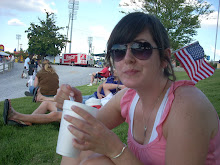A Few to Get Started
These are some that I've read over the past couple of months.
Travels With Charley by John Steinbeck
I should have realized from the size of this book that only so much could be accomplished, but I still hyped myself up for something a little more profound. I loved the premise, and there are some really sharp observations that are still true to this day, but I ended the book feeling a somewhat short changed. But, I guess a guy can only cover so much of America in so many days.
Steinbeck does, however, have a gift for characterizing places and feelings that match perfectly to the type of people who exist there. Not only can he paint a vivid picture of a redwood forest that makes you feel incredibly small, but he can tell you all about the natural instincts of a Texan. His close proximity and outsider's objectivity to a civil rights moment he caught is telling of the differences Americans have. Worth the read, but don't expect an overly thorough portrait of America as a whole.
In Cold Blood by Truman Capote
I'll admit that I wanted to read this because I had just gotten done reading a biography of Harper Lee that talked a lot of her contribution to the investigation and story of the small town murders. I ripped through this book because of its combination of winning qualities. It's a true story which makes it interesting in its own right. Beyond that, the true story involves an extraordinary event (the killings of a family) in a very ordinary setting (rural Kansas, late 1950s). While reading, I had to keep reminding myself that what I was reading was real.
It's a captivating read not only because you want to know who committed the crime, but you want to know why (there seemed to be no motive), and you want to know everything you can about all of the characters involved, even the citizen bystanders in the town. Capote wrote a book that reads like a fiction crime novel, but could only be a true story.
Wise Blood by Flannery O'Conner
Okay, so going into this one I thought it was a no-brainer. I would definitely like it because of two things: mid twentieth century (check) and southern (check). But, my instincts failed me. Now, I've told this to a few people and they acted astonished. I don't think I have much tolerance for characters that wonder, seemingly without a purpose. When they end up here, and then there, and then again another place, all during the story, with no plot that I can distinguish, I get frustrated.
I also think that maybe I didn't quite understand the context of the character. I didn't understand his plight or his point, and when I don't understand, I get bored and don't care. I hear I should read some more O'Conner. We'll see.
Travels With Charley by John Steinbeck
I should have realized from the size of this book that only so much could be accomplished, but I still hyped myself up for something a little more profound. I loved the premise, and there are some really sharp observations that are still true to this day, but I ended the book feeling a somewhat short changed. But, I guess a guy can only cover so much of America in so many days.
Steinbeck does, however, have a gift for characterizing places and feelings that match perfectly to the type of people who exist there. Not only can he paint a vivid picture of a redwood forest that makes you feel incredibly small, but he can tell you all about the natural instincts of a Texan. His close proximity and outsider's objectivity to a civil rights moment he caught is telling of the differences Americans have. Worth the read, but don't expect an overly thorough portrait of America as a whole.
In Cold Blood by Truman Capote
I'll admit that I wanted to read this because I had just gotten done reading a biography of Harper Lee that talked a lot of her contribution to the investigation and story of the small town murders. I ripped through this book because of its combination of winning qualities. It's a true story which makes it interesting in its own right. Beyond that, the true story involves an extraordinary event (the killings of a family) in a very ordinary setting (rural Kansas, late 1950s). While reading, I had to keep reminding myself that what I was reading was real.
It's a captivating read not only because you want to know who committed the crime, but you want to know why (there seemed to be no motive), and you want to know everything you can about all of the characters involved, even the citizen bystanders in the town. Capote wrote a book that reads like a fiction crime novel, but could only be a true story.
Wise Blood by Flannery O'Conner
Okay, so going into this one I thought it was a no-brainer. I would definitely like it because of two things: mid twentieth century (check) and southern (check). But, my instincts failed me. Now, I've told this to a few people and they acted astonished. I don't think I have much tolerance for characters that wonder, seemingly without a purpose. When they end up here, and then there, and then again another place, all during the story, with no plot that I can distinguish, I get frustrated.
I also think that maybe I didn't quite understand the context of the character. I didn't understand his plight or his point, and when I don't understand, I get bored and don't care. I hear I should read some more O'Conner. We'll see.


0 Comments:
Post a Comment
<< Home